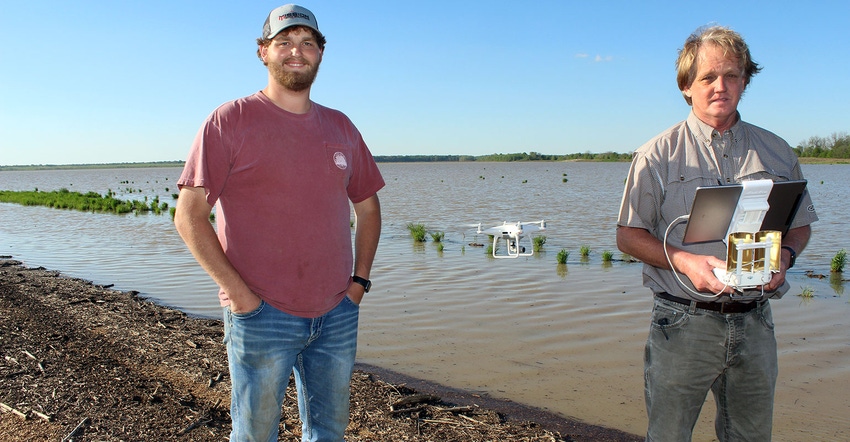
At some point during our years progressing through school, we were taught that over 70 percent of the Earth’s surface is covered with water.
Most of us are aware of this geographical fact, but few of us ever give it a second thought. As 2019 rolls along, the inordinate amount of rain that has fallen and is now wreaking havoc on several sections of our country adjacent to tributaries heading towards the ocean, reminds us all of water’s incredible power and uncontrollability.
After traveling across the South Delta and seeing only water where thousands of acres of crops should be flourishing, I wonder how any farming operations will be able to recover from this slap in the face from Mother Nature. When the water finally recedes, will it be too late for farmers to try and plant something?
Almost weekly I make it a point to contact South Delta farmers Clay Adcock and Billy Whitten. I visited them almost two months ago and saw first-hand how the backwater had covered their farmland. Billy’s row crop ground in Valley Park, Miss., has been covered since mid-January, and Clay’s land has been flooded since the middle of February. Water now encroaches both their homes.
Despite the widespread damage from flooding across the country, urban areas seem to be garnering more coverage from national news outlets. I remember Clay commenting about that very fact during my time with him. He was in no way was placing the severity of his plight over the plights of others, but simply stating an opinion that many in the South Delta share.
Even as meteorologists predict more rain over the next few weeks, water from the swollen Arkansas River is heading toward the Mississippi River, and will further prolong the opening of the Steele Bayou Control Structure. Built in 1969, the structure was designed to protect 750,000 acres of alluvial lands from flooding by Mississippi River backwater.
Unfortunately, there is a two-pronged problem. First, the Steele Bayou gates cannot be opened when the water level of the Mississippi River is higher than the elevation of the gates. Second, and the most vexing, is the absence of pumps to carry excess rainwater from the South Delta side of the structure over to the Mississippi River.
Political wrangling back in the middle 1980s stalled funding for the pumps and now the South Delta, its farmers and residents specifically, are paying the price. Clay has started an online petition to illustrate the number of concerned citizens pleading for the pumps to be installed. It may be found at https://www.change.org/p/clay-adcock-override-epa-veto.
Despite the many broken levees and the broken political process which thwarted the funding approval for the pumps, the one thing I never saw in any farmer I spoke with when I was in the South Delta, was a broken spirit.
About the Author(s)
You May Also Like




